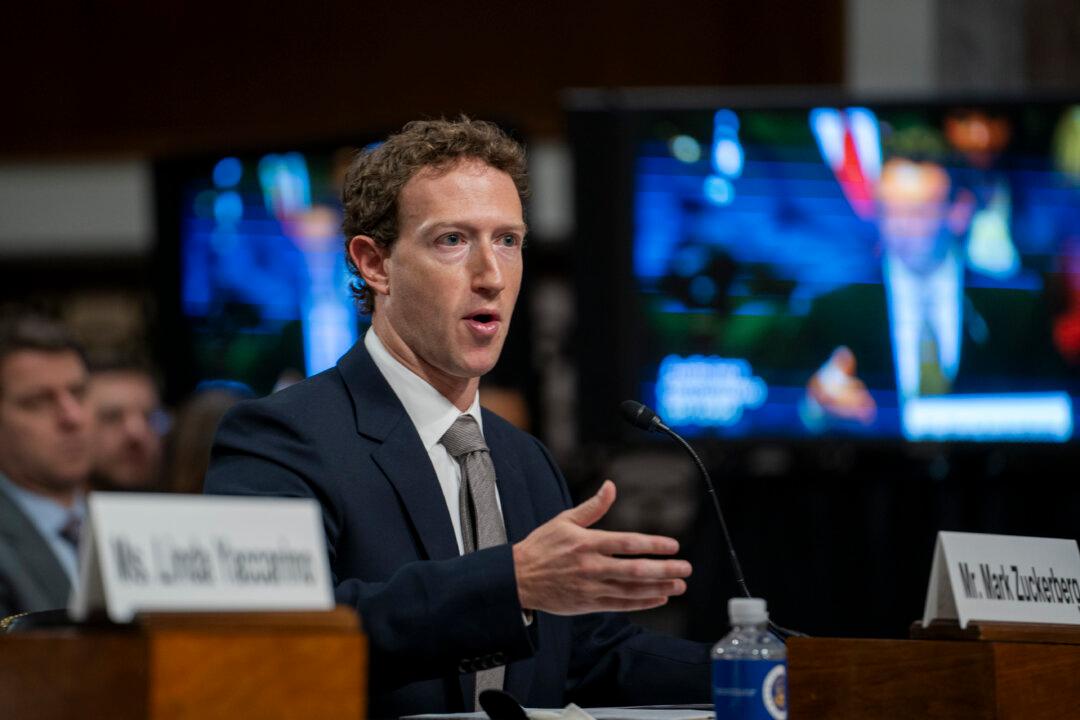Leading social media company CEOs faced probing questions over their safety policies on Capitol Hill during a Jan. 31 hearing on online child sexual exploitation.
The session, held by the Senate Committee on the Judiciary, grilled TikTok Inc. CEO Shou Chew, Discord Inc. CEO Jason Citron, Snap Inc. CEO and co-founder Evan Spiegel, X Corp. CEO Linda Yaccarino, and Meta Platforms Inc. founder and CEO Mark Zuckerberg over the harms the committee alleges the leading social media and online communications platforms are allowing to befall children in the United States.





